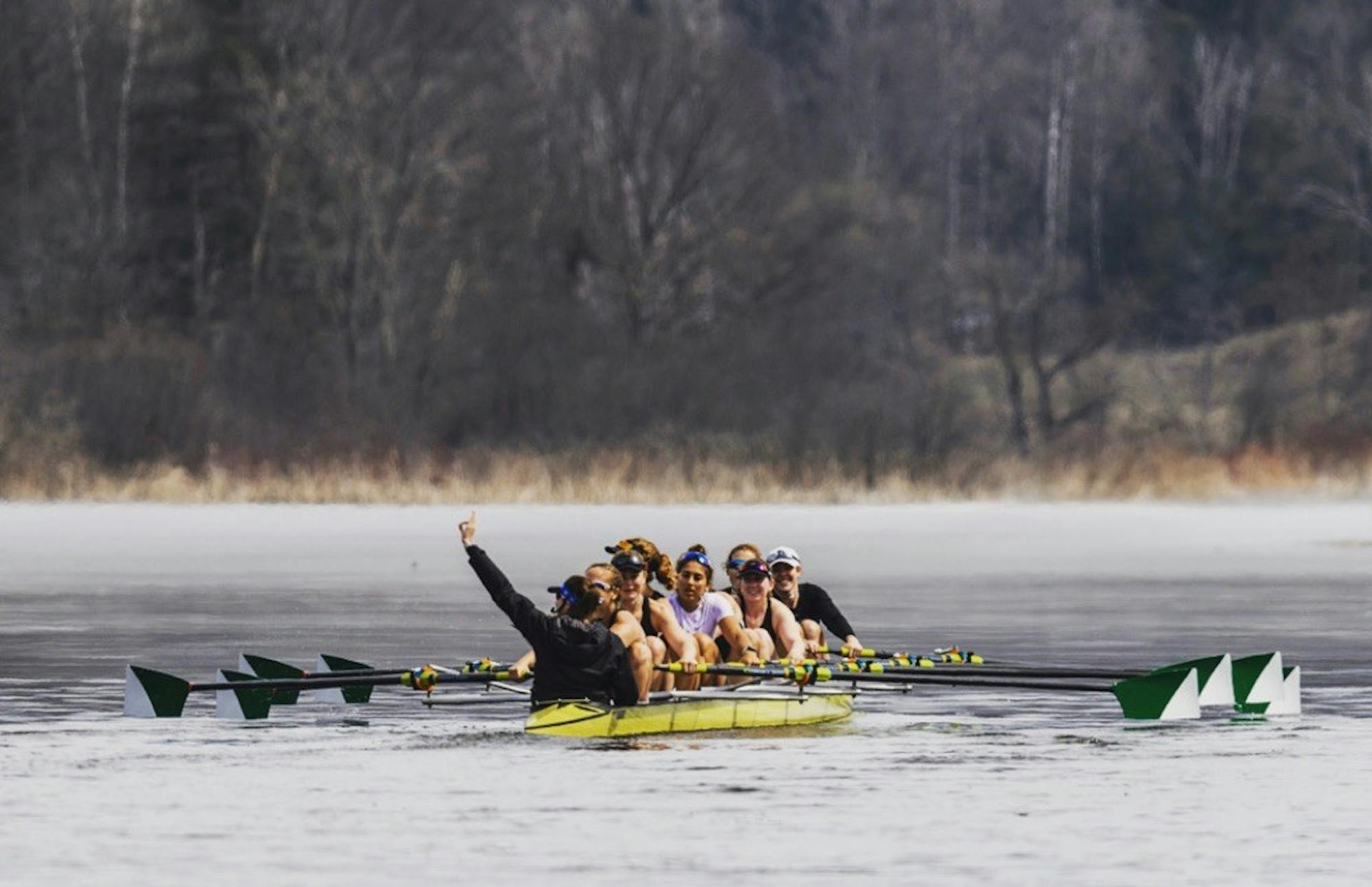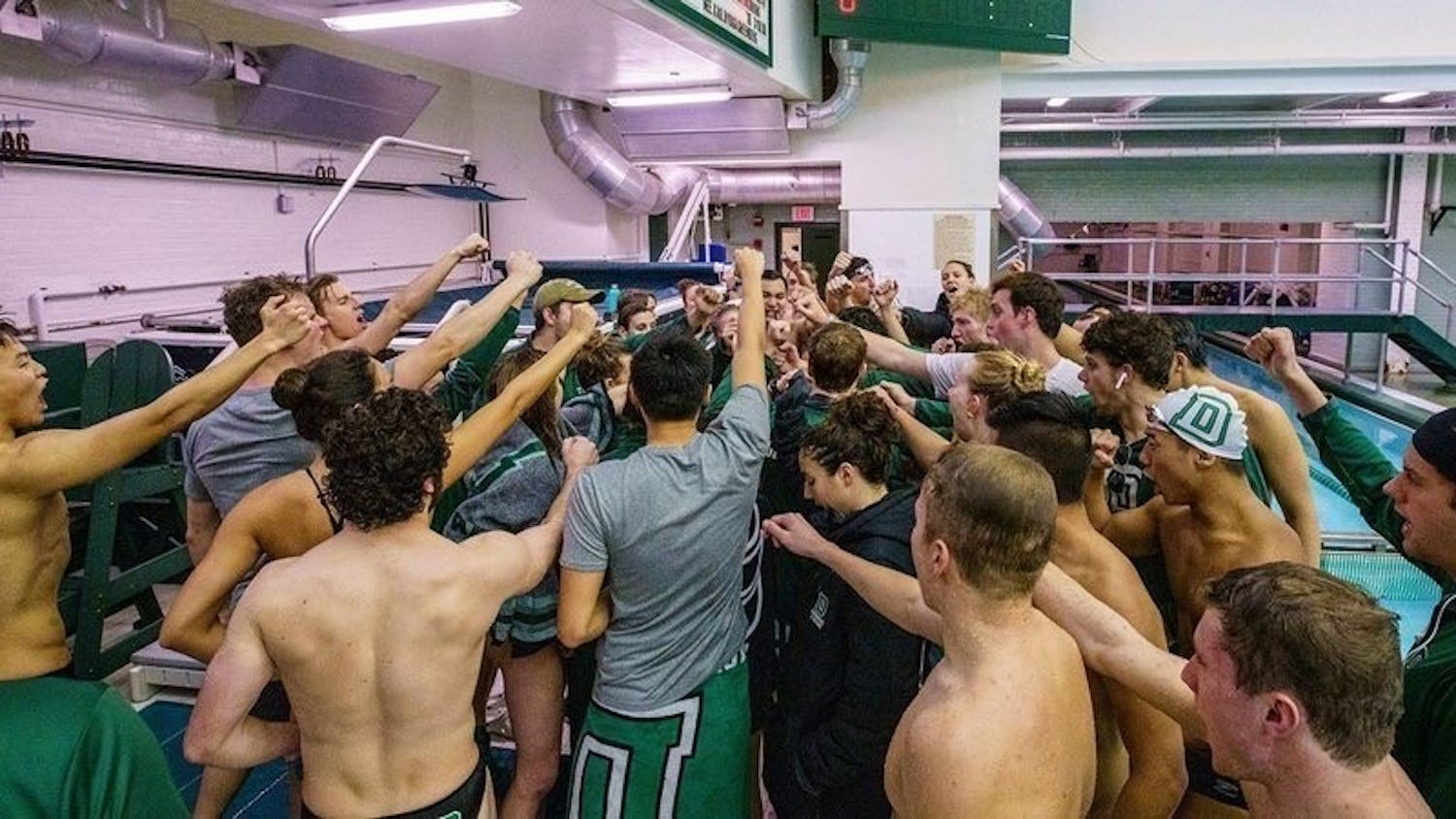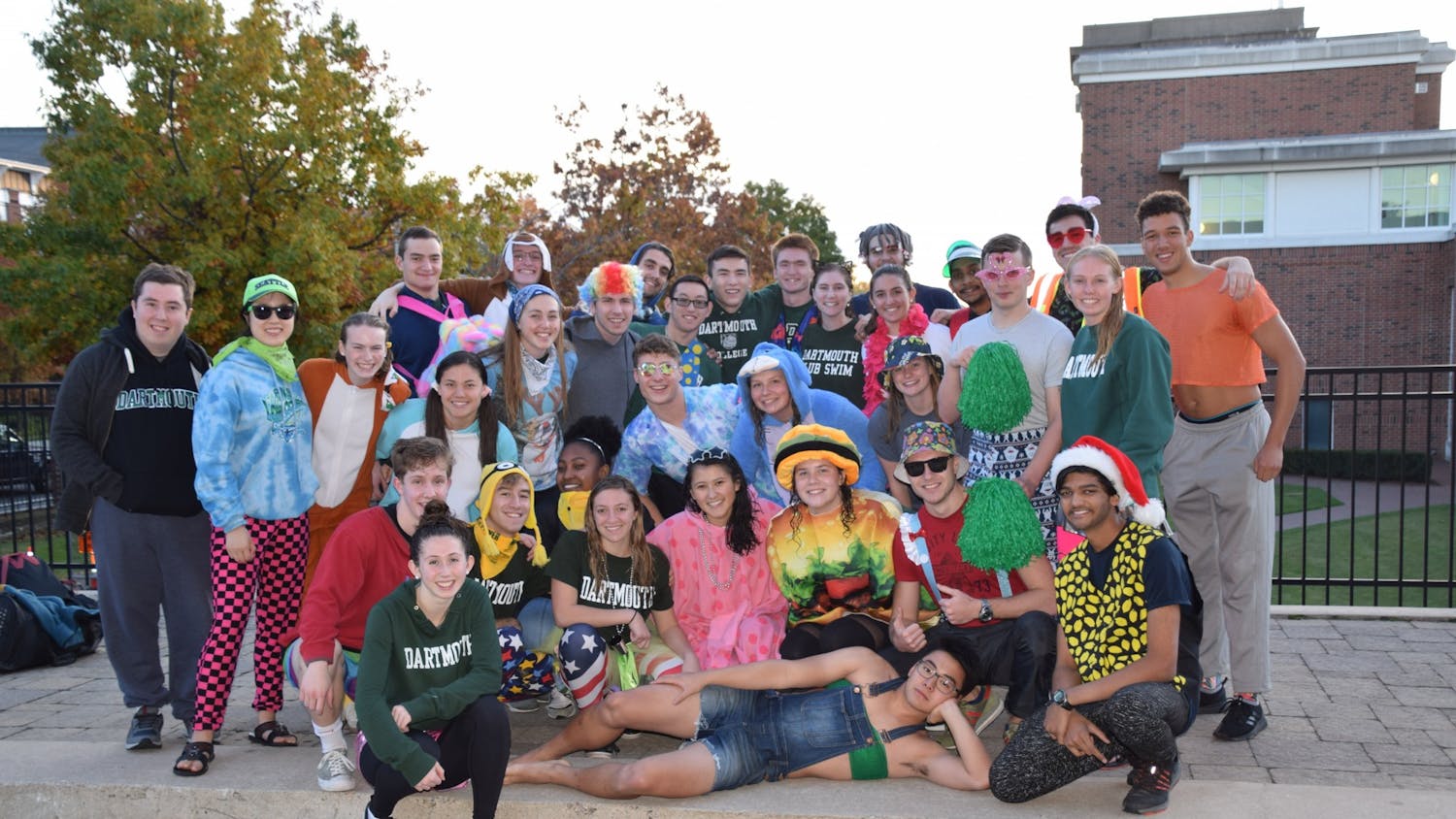Seven former members of the women’s swimming and diving team have walked on to the women’s rowing team, citing a desire to compete and remain members of a varsity program. The women’s swimming and diving team was among five varsity sports programs that the College eliminated in July.
Women’s rowing head coach Nancy LaRocque said that she was “heartbroken” about the decision to cut the programs and knew right away that she wanted to extend the opportunity to swimmers and divers to learn to row.
“I can't imagine what it would be like losing my sport in college,” LaRocque said. “This I feel like just opened up an avenue for these women to keep training as varsity athletes. … We wanted to make sure that they knew they were welcome.”
This term, five former swimmers from the Class of 2024 and two from the Class of 2022 have joined the rowing team. According to one of them, Sarah Minnigh ’22, there are more swimmers and divers not enrolled on campus this fall who are hoping to join the rowing team in later terms.
Minnigh said that the swimming and rowing teams are close, so word spread quickly that the rowing team was open to walk-ons. She said that she was drawn to joining the rowing team because she wanted to experience the character development and teammate bonds that she said are largely unique to varsity athletic programs.
“You don’t really get that [bond] in other walks of life,” Minnigh said. “You’re doing this really difficult thing together all the time, and you’re thrown into it with a bunch of people … and end up really close.”
In his announcement of the cuts, College President Phil Hanlon stated that one option for athletes on eliminated teams was to join club sports, while the linked FAQ offered to support students who wished to transfer. Minnigh, who has already spent two years at Dartmouth, said that she was not considering transferring but wanted to participate in a program akin to the “level of intensity” of being a varsity swimmer.
Despite having four years of eligibility elsewhere, Diana Bates ’24 also decided against transferring and walked onto the rowing team, noting her commitment to Dartmouth beyond the swimming and diving team.
“When you commit to a sport at a certain school, you don’t just do it for the sport,” Bates said. “I knew coming to Dartmouth — say I possibly got injured — I’d still love the school for the school.”
Bates added that while the campaign to save the swimming and diving teams is still ongoing, she feels fortunate for the opportunity to become a member of the rowing team.
Recruited rower Audrey Craighead ’24 noted the significance of extending a chance to compete at a high level to the varsity swimmers, particularly after the rowing program had been impacted by team cuts as well. According to Craighead, having lost the men’s lightweight rowing team this summer, it was nice to know that women’s rowing could help out another team impacted by the cuts.
LaRocque said that in a typical year, tryouts for the women’s rowing team would be open to all of campus. Due to capacity constraints due to COVID-19, LaRocque said the athletics administration asked her not to have open tryouts this year. Swimmers who were approved to be on campus for the fall term, however, did not pose additional strain on athletic resources and therefore had the opportunity to walk on.
According to LaRocque, students with athletic backgrounds transition well to rowing. In particular, LaRocque said that collegiate swimmers have “a good engine” from training for years, as well as a “good feel for the water.”
“When your blade goes in the water and it comes out of the water … it's similar to freestyle or your hand going in the water and then coming out of the water,” LaRocque said.
Craighead said that the “time-based” nature of both sports also makes for an easier transition.
“It’s not the same as going from a time-based sport to … something like lacrosse,” she said. “It’s going from swimming to rowing, so it’s all based on similar math.”
Even with similarities across the sports of swimming and rowing, Minnigh said learning an entirely new sport has been a “rediscovery” of the memory of first learning how to swim.
“It's kind of like when I was eight years old when I was learning to swim competitively,” Minnigh said. “You're just constantly trying to figure out how to move and not feel clumsy in the water.”
Craighead also noted the competitive edge the former varsity swimmers have brought to the rowing team.
“There are these people who have been rowing for two weeks, who are in incredible shape and they’re getting similar scores,” Craighead said. “It’s definitely a wake up call.”
That said, Craighead believes the former swimmers add a fun, positive dynamic to the team, as they are eager and excited to learn and improve. According to Craighead, a seasoned rower knows what times she should aim to get and perhaps has some anxiety behind meeting those standards, but the new rowers are free from those potential constraints.
“They have no clue what to really aim for, so they just give it their all,” Craighead said. “It’s inspiring.”
Correction appended (October 23, 2020): A previous version of this article incorrectly attributed the announcement of the athletic cuts and alternatives for athletes on eliminated teams to an announcement from athletics director Harry Sheehy. The article has been updated to reflect that the athletic cuts and the option to join club sports were originally announced in an email from Hanlon, while the option to transfer was discussed in the FAQ linked to the email.




